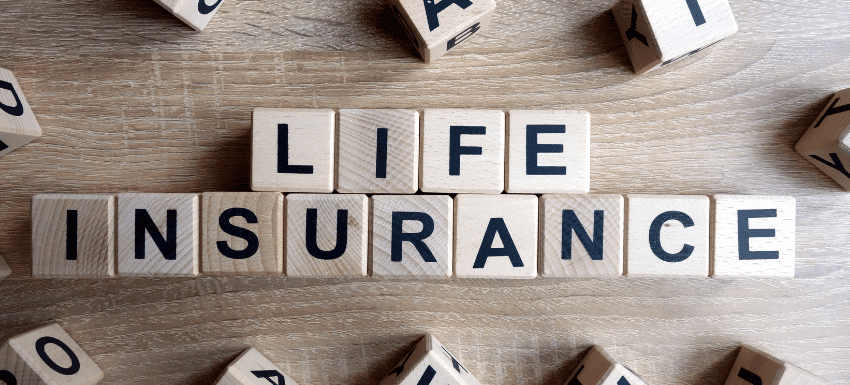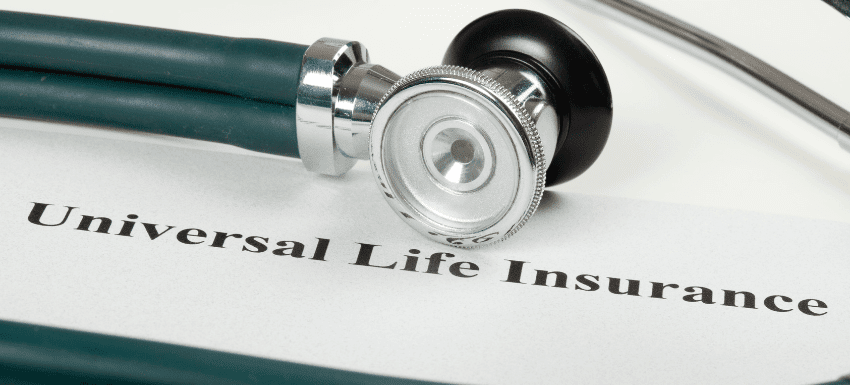
When purchasing life insurance, you must choose between term and permanent coverage. Term life insurance is the most basic and pure form of insurance, but permanent life insurance comes in a variety of forms, each of which builds account value in a different way.
Universal life insurance is a sort of policy that many people can benefit from. It is a permanent policy, which means it will cover you until you pass away.
The ability to adjust rates is one of the key advantages of universal life insurance. This means you can change your payments to fit your budget and financial condition. A further benefit is that the death benefit is tax-free.
If you’re looking for a solid life insurance policy, universal life insurance could be the way to go.
What Is Universal Life Insurance?

A type of permanent life insurance is universal life insurance. It covers you for life and builds up tax-deferred cash value, much like whole life insurance. When you’ve built up enough cash value, you can withdraw it or borrow against it.
The most significant distinction between entire life and universal life is that the latter is more adaptable. Many universal life policies, for example, allow you to tailor your premiums and death benefit to meet your specific needs.
In addition, the insurer encourages you to select investment options based on your risk tolerance and investing objectives. Universal life costs more than term life, although it can be less than whole life.
A portion of your premium goes toward covering the cost of insurance with a universal life insurance policy. The remainder is put into a tax-advantaged investment account.
That means you won’t have to pay interest on any money you withdraw from this account as long as the amount you withdraw doesn’t exceed the amount you’ve already paid in.
The insurer ensures that the cash value of your coverage will rise at a defined minimum rate. However, if the market does well, it can expand at a quicker rate. You can borrow or withdraw money from your policy once it has accumulated enough value.
You can use it to pay future premiums if you don’t want to use it. If you die, the insurance will deduct the amount of any unpaid loans or withdrawals from your death benefit.
Some universal life insurance enables you to adjust the premium up or down within a specific range. Anything you pay in excess of the minimum is deposited into the built-in savings account.
The monetary value is normally not added to the benefit, although there are several options for increasing the benefit through dividends or riders.
A universal life insurance policy’s benefit is tax-free, but any interest gained on an unpaid benefit is. Your family can choose whether to get the benefit in a single tax-free payment or in installments.
Types of Universal Life Insurance
Indexed Universal Life Insurance
Indexed universal life is a type of insurance that offers coverage for the rest of your life while also building cash value. The death benefit is determined when you purchase the policy, but it is subject to change. The performance of a stock index is tied to the value increase.
S&P/TSX is a stock index that evaluates how well the stock market is performing. The insurer chooses one or more of these indexes and pays policyholders interest dependent on how well the index performs.
The cash value will grow quicker if the index performs well. However, you’ll get a rate that’s lower than the specified index’s performance.
Because the insurer gets a significant piece of the pie, this is the case. And if the market does not perform as expected, you will earn less or nothing. As a result, you may be required to pay higher premiums in order to keep your insurance active.
You’ll have to keep a close eye on the cash value of your insurance. If the value of your policy is insufficient to cover the cost of insurance and policy expenses, it may lapse.
Guaranteed Universal Life Insurance
A guaranteed universal life insurance policy may be a good option for you if you don’t want your coverage to be based on market performance. Your rates will stay the same with a guaranteed universal life insurance policy, regardless of how the market indexes perform. Because the interest rate is built into your policy premiums from the start, this is the case.
A “no-lapse” guarantee is included with this sort of life insurance policy. That means your coverage will not lapse as long as you pay your premiums. It thus mixes the concept of universal life with some features of term life in a way. Your premiums and the policy’s death benefit remain unchanged.
However, you will only accumulate a small amount of cash value as a result of this tradeoff (if any at all). That means you’ll have to make sure you pay your premiums on time. If you don’t make one, your policy will most likely lapse because the value is usually insufficient to cover the cost of insurance and associated fees.
Variable Universal Life Insurance
You can vary your death benefit and premiums as needed with variable universal life insurance. You can also invest the cash value in a variety of funds offered by the insurer, depending on your risk tolerance and investing objectives.
You will be rewarded handsomely if these funds perform properly. You can either utilize the cash value to pay future premiums or withdraw funds. Even when you diversify your risks, there is still a level of danger. This is due to the fact that forecasting the market’s performance is nearly impossible.
How much does Universal Life Insurance Cost?

Unlike term life insurance, universal life insurance provides lifetime protection and accumulates value. As a result, they are more expensive than term life. They are, nevertheless, less costly than whole life insurance policies.
Premiums for universal life insurance are tailored to the individual seeking coverage. The following are the primary elements that influence your insurance costs:
- Age
A universal life insurance policy, like other insurance policies, becomes more expensive as you get older.
- Coverage amount
Policies with bigger death benefits are more expensive than those with lesser payments. A universal life insurance policy with a $500,000 benefit is likely to cost more than one with a $250,000 payout.
- Health
When you sign up for a policy, the insurance company will conduct an underwriting evaluation of your health. You’ll be asked some health-related questions and given a brief medical examination.
Applicants who are in good health are classified more favorably and pay reduced premiums. Certain conditions, like diabetes or high blood pressure, can, on the other hand, raise your rates.
- Family’s medical history
Certain diseases, such as diabetes, have a genetic component. As a result, when you apply for life insurance, firms will ask about and evaluate your family’s medical history. A family history of diabetes, high blood pressure, or cancer can result in higher premiums.
- Smoking status
Smokers are more likely than non-smokers to die young. As a result, it’s no surprise that they have to pay more for coverage.
- Occupation & Lifestyle
A risky career or pastime, such as skydiving or bungee jumping, can increase your insurance premiums.
- Gender
When it comes to life insurance, men pay more premiums than women due to the latter’s longer life expectancy. On average, men spend 38% more for the same coverage as women. And when people get older, the premium gap widens.
Premiums can be paid monthly or annually. You don’t get a discount for paying your universal life insurance payments annually, unlike term or whole life insurance.
You can pay premiums with the cash value of the coverage. If you don’t pay your premiums on time, the insurer will deduct an equal amount from your built-in savings account. Your coverage will lapse if the value is insufficient to cover the cost of insurance.
How does the death benefit work?

The death benefit of a universal life policy, like that of whole life or term life insurance, is paid as a single, tax-free payment to the recipient. Unlike other life insurance policies, however, universal life insurance allows the insured primarily three implementation alternatives.
- Level: As long as you pay premiums, the situation remains the same. Even when the value of the built-in investment account is low or zero, it remains unchanged. The insurer pays your family the benefit amount or the account value, whichever is greater after you die.
- Face plus Account Value: When you die, your beneficiaries receive the initial coverage amount as well as the value of the investment account.
- Account value: Following your death, your family receives the value of your investment account — and nothing else.
Over time, the value of a benefit and an account. For example, with the death of each insured, the insurance company may pay a portion of the benefit. After the death of the final insured person, the insurer may pay the remaining benefit amount and cash value.
How do you access the cash value?

The cash value of universal life insurance coverage grows tax-free. It is available in the following formats:
- Cash Withdrawals: You can take money out of the account value of your policy at any moment. Only when cash-value withdrawals surpass the amount of premiums paid into the policy are they taxable. The quantity of cash you’ve taken will lower your benefit.
- Policy Loan: A policy loan can be used to access the cash value of the policy. As long as the loan does not exceed the amount you paid into the policy, it is not taxable as income. If you can’t pay it back, the insurance will cut your payout by the amount you owe. When you apply for a policy loan, the insurer doesn’t conduct a credit check or ask any questions because you’re simply borrowing your own money.
- Collateralizing the Cash Value: You can use the cash value of your universal life policy as collateral for a loan from a financial institution. If you die before repaying the loan, the insurance will first use the benefit to pay the lender. Any residual monies will be distributed to your family.
- Surrendering the Policy: If you cancel your policy, you will receive the cash surrender value. The cash surrender value is calculated by subtracting the actual cash value from any surrender fees and any outstanding loans.
What affects the money value of a life insurance policy?
A universal life policy allows you to adjust premiums and choose the investment option that best suits your financial objectives. The insurer does not guarantee a rate of return on the cash value because of this flexibility.
The growth rate of your policy’s cash value may fluctuate on account of several reasons, such as:
- The performance of the underlying investments option
- The number of insurance premiums paid by you
- The death benefit amount selected at the beginning
- Any cash withdrawals or policy loans that you have taken
What happens to the cash value if you don’t use it?
The death benefit is the sole money your recipient receives when you die. Any unused cash value, which you’ve painstakingly built up over the years, is given to the insurer. Take a moment to absorb that.
But that’s only the beginning.
If you take money out of the cash value of your policy, the insurer will subtract the amount from your benefit. If you take out a policy loan and don’t pay it back, your payment will be reduced by the amount of the policy loan.
In other words, you’re in a lose-lose situation.
Benefits of Universal Life Insurance
Universal life insurance plans provide customers who want more flexibility and control over their policy with a number of benefits. These are some of them:
The flexibility of premium payment options
Whole life insurance premiums are predetermined and must be paid on a regular basis. Universal existence, on the other hand, provides a great deal of versatility. You choose how much to pay and when to pay it.
When your financial situation is less than ideal, you can pay more premiums to boost the policy’s cash value or miss premium payments entirely. You can also use the cash value to pay your insurance premiums.
Adjustable death benefit
needs. Let’s imagine you discover 20 years later that you don’t require the whole benefit provided by the policy but would like to have greater cash value. You can reduce the benefit amount in return for increased account value with universal life.
On the other hand, if you decide at a later date that you require more insurance, you can increase the benefit amount. You may, however, be required to take a health examination first.
Cheaper than whole life insurance
In comparison to whole life insurance, universal life insurance sometimes necessitates more input from the insured. It also provides less assurances. As a result, universal life insurance policies are less expensive than comparable whole life insurance policies.
Wide range of investment options
Depending on their risk tolerance and long-term financial goals, universal life insurance policyholders have a variety of investing possibilities.
Negatives of Universal Life Insurance
Complex and requires close monitoring
Universal life insurance is a difficult beast to understand. For example, the cash value of these policies does not increase at a consistent rate. Instead, growth is dependent on the performance of underlying investment alternatives, so you’ll need to understand how it works and what costs you’ll have to pay.
Furthermore, with a variable universal life policy, you must normally manage your sub-accounts. As a result, it’s critical that you understand what you’re doing. Otherwise, the cash worth may quickly depreciate.
You should also keep an eye on the cash value account of your insurance policy. Your coverage will lapse if the value falls to zero. This will result in a loss of investment and the need to repurchase coverage.
Pay premiums until your death
The majority of universal life insurance policies require you to pay premiums until you pass away. Many people find it difficult to keep up with premium payments in their senior years, especially if their cash value savings do not rise as expected. You won’t be able to utilize the policy’s value to pay off future premiums if you do this.
Uncertain returns
Universal policies accumulate cash value. But there’s no certainty of future returns. How much cash value you accumulate depends on two factors:
- The actual cost of insurance
- The rate of interest earned on cash value savings
As you get older, the cost of death benefits increases. Let’s imagine you’re a 30-year-old woman who pays a monthly premium of $100. The first $30 goes into insurance, while the remaining $70 goes into the policy’s investing account.
That amount, though, will alter as time passes. When you reach the age of 65, the split can be $80 for insurance and $20 for cash value savings. And if the investments don’t turn out the way the insurer had planned, you might find that the enormous nest egg you expected isn’t so big after all.
High expense ratio
On paper, the cash value component of universal life insurance appears to be fantastic, but it may not be.
For starters, insurance firms charge a substantially greater fee for handling your universal life policy’s investing component. Fees for alternative investment vehicles are usually one percent or less. In comparison, universal life insurance policies price 3% or perhaps more. As a result, the rate you earn on your policy’s cash value is lower than the underlying investment option’s real performance.
Higher fees
Insurers might charge a variety of fees in addition to a substantial fee for administering the investment account. If you change your investment selections frequently, take a policy loan, or make a withdrawal, you may be charged a fee.
Another disadvantage is that depending on when you cancel the policy, it can be costly. Make sure you talk to an expert to figure out how much of your cash value you’ll lose if you cancel your universal life policy after the first two, four, eight, and so on years.
What is the anti-dump-in rule?
A life insurance policy’s principal goal is to provide a cash benefit to beneficiaries in the event of the insured’s death. Its purpose is to ensure that your dependents may live comfortably after you are no longer able to look after them.
The anti-dump rule assures that Canadians view life insurance in this light. That is, as a means of securing their family’s financial future rather than as a means of investing.
Permanent life insurance is useful for two reasons. It provides a death benefit to your family and generates financial worth that you can enjoy while you’re living.
If you withdraw or borrow money from the policy’s investment account (also known as the cash value), the money accumulates tax-deferred. If the policy terminates when you (the insured) die, it can grow tax-free.
The anti-dump regulation prohibits people from dumping money into universal life insurance plans and exploiting them as an investment vehicle, as the name implies. The 250 percent rule is another name for it.
The anti-dump rule specifies that the cash value of your life insurance policy cannot be more than 250 percent of what it was three years prior after the tenth year. If this happens, the policy’s tax-free status may be jeopardized.
As a result, during the first seven years, this restriction has no bearing on your universal life contract. And it’s not until the seventh year that the anti-dumping rule starts to make a difference.
Let’s say your universal life policy’s cash value at the end of the seventh year is $10,000. That means the cash value in the tenth year cannot be more than 250 percent of the cash value in the seventh. As a result, the highest monetary value allowed by this rule in the tenth year is 25,000.
Similarly, if the cash value increases to $12,000 in the eighth policy year, the maximum value allowed in the eleventh year is $30,000. In other words, the cash value in the ninth year has an impact on the 12th year, and the cash value in the tenth year has an impact on the thirteenth year, and so on.
What is a service account?
Deposits that surpass the 250 percent guideline are avoided by Canadian insurance firms. They achieve this by shifting extra funds to a service account, which is completely taxable. This account is separate from the investment account and grows at its own pace. The insurer will transfer monies from the service account into the investment account once it has enough room to take on more money.
$10,000. In the ninth year, the policy has a cash value of $8,000, and you add another $4,000 to it. This brings the total cash value to $12,000, $2,000 more than the tax-free threshold. The excess money (i.e. $2,000) will be deposited into the savings account by the insurer. It will transfer this money to the investing account as soon as the financial room becomes available (for which it was originally intended).
Who should buy Universal Life Insurance?

Universal life insurance is an excellent fit for folks who need it for specific reasons. If you have a high net worth and have exhausted all of your other tax-deferred savings accounts, a universal life policy can provide you with a new investment vehicle. In addition, if you have a long-term dependent, such as a special-needs child, who will require care after you die, universal life insurance can ensure that they are adequately supported financially.
Premiums and benefits are both flexible with universal life insurance. As a result, it may be the best option for someone who desires the freedom to adjust their premium or death benefit as their circumstances change.
Universal Life vs. Term Life Insurance
Term life insurance is the most basic and straightforward type of life insurance. The insurer offers to pay a specific death benefit to your family in exchange for premium payments. Term life, as the name implies, is only for a short time.
The benefit and premiums remain constant during the policy’s life, and there is no investing component. Term life insurance is often the most cost-effective of all life insurance options.
Comparisons between universal life insurance and term life insurance:
- Both help you protect your family financially from the unexpected
- Both offer a guaranteed benefit (Although, with universal life, you can adjust the benefit)
Here’s a quick comparison guide:
| Policy Features | Term Life Insurance | Universal Life Insurance |
| Cost | Most affordable life insurance product | More expensive than term life |
| Policy Term | Coverage is available for a term of 1 year to 35 years | Life |
| Guaranteed Death Benefit | Yes | Yes (But you can adjust it if you want) |
| Accumulates Cash Value | Yes | Yes |
| Level Premiums | Depends on the term life insurance product you select | Not all universal life insurance policies have level premium |
| Flexible-Premium Payments | No | Yes. Many universal life policies allow policyholders to adjust the size and timing of their premium payments |
| Adjustable Death Benefit | No | Yes. Many universal life policies allow policyholders to adjust their death benefits |
Universal Life vs Whole Life Insurance
Whole life insurance is the closest thing to a “set it and forget it” approach to life insurance. The policy will cover you for the rest of your life, and the premium and death benefit will remain the same. In addition, the cash value grows at a certain rate.
All of these guarantees — lifetime coverage, level premiums, death benefits, and guaranteed cash value increase — come at a price. Whole life insurance is more costly than other types of life insurance. It is also the only sort of life insurance that allows you to receive profits.
Similarities between universal life and whole life insurance:
- Both cover you as long as you live
- Both build cash value that grows at a tax-deferred basis
- Allows you to take money out of cash value via a withdrawal or policy loan
- Allows you to terminate the policy for its surrender cash value
- They offer a guaranteed benefit (Although, with universal life, you can adjust the benefit)
Here’s a quick comparison guide:
| Policy Features | Whole Life Insurance | Universal Life Insurance |
| Cost | Most expensive life insurance product | Costs less than the whole life |
| Policy Term | Life | Life |
| Guaranteed Death Benefit | Yes | Yes (But you can adjust it if you want) |
| Accumulates Cash Value | Yes | Yes |
| Level Premiums | Yes | Not all universal life insurance policies have a level of premium |
| Flexible-Premium Payments | No | Yes. Many universal life policies allow policyholders to adjust the size and timing of their premium payments |
| Adjustable Death Benefit | No | Yes. Many universal life policies allow policyholders to adjust their death benefits |
| Guaranteed Cash Value Growth | Yes | No |
| Potential to Earn Dividends | Yes | No |
| Investment Choices | Made by the insurer | You decide how to invest the premiums from a range of investment options offered by the insurer |
| Require Active Participation from the Policyholder | No | Some universal life policies need your active participation |
Universal Life vs Variable Life Insurance
Variable life insurance, like universal life insurance, covers you for the rest of your life and generates cash value. It does not, however, provide the same level of flexibility in terms of death benefits and premium payment options. In the case of variable life insurance, you can choose from a variety of investment options, including stocks, bonds, and mutual funds.
Here are the similarities between universal life and variable life insurance:
- They both provide lifelong coverage
- Both include an investment account
- Both don’t offer a guaranteed rate of return on cash value
- Let’s you to take money out of cash value via a withdrawal or policy loan
- Both allow you to terminate the policy for its surrendered cash value
- Offers guaranteed benefit (Although, with universal life, you can adjust the benefit)
Here’s a quick comparison guide:
| Policy Features | Universal Life Insurance | Variable Life |
| Policy Term | Life | Life |
| Guaranteed Death Benefit | Yes (But you can adjust it if you want) | Yes |
| Accumulates Cash Value | Yes | Yes |
| Level Premiums | Not all universal life insurance policies have level premiums | Level |
| Guaranteed Cash Value Growth | No | No |
Universal Life vs Term-to-100 Life Insurance
A sort of permanent life insurance product is term-to-100 life insurance. You must pay premiums until you reach the age of 100. Your premium payments will stop after that, but your coverage will continue. Term-to-100 life insurance has a guaranteed death benefit, flat premiums, and no cash value accumulation. It is less expensive than universal life insurance because of the last point.
Similarities between universal life insurance and term-to-100 life insurance:
- Both offer lifelong coverage
- They both come with a guaranteed benefit (Although, in the case of universal life, you can adjust the benefit)
- Both are less expensive than whole life insurance
Here’s a quick comparison guide:
| Policy Features | Universal Life Insurance | Variable Life |
| Guaranteed Death Benefit | Yes (But you can adjust it if you want) | Yes |
| Accumulates Cash Value | Yes | Yes |
| Level Premiums | Not all universal life insurance policies have level premiums | Level |
| Guaranteed Cash Value Growth | No | No |
Is Universal Life Insurance right for you?
Universal life insurance has a lot of advantages, but it also has some disadvantages. It is a sophisticated and one-of-a-kind life insurance product, making it an excellent solution for persons with exceptional needs.
Universal life insurance is a good fit for you if any of these statements describe you.
- You’re a high-net-worth individual who has exhausted all existing tax-advantaged investing options and is looking for another way to save tax-free.
- You have a long-term dependent and need a life insurance policy that won’t expire before you do.
- You desire the flexibility to invest your premium dollars and are certain that you can get a higher return than whole life insurance.
- You’ll want a perpetual life insurance policy that allows you to vary your premiums and death benefit when your circumstances change.
Which is the best life insurance policy?
The answer to this question isn’t found in the back of the book. Life insurance is a deeply personal purchase and there are many factors to consider. In addition to taking into account your current family’s financial needs, you should also account for future expenses like tuition, funeral arrangements, estate taxes, and any other debts you would like settled if you died. (If that sounds complicated, there are insurance calculators).
When you search for insurance quotes, there are a multitude of options to choose from. Nevertheless, you should only purchase a policy you can afford and that makes sense for you and your family.
Thankfully, AG Group Enterprise Ltd, is here to help! Our mission at AG Group is to provide a wide range of life insurance policies, including term coverage, permanent coverage, RRSPs, RESPs, and more!
With AG group’s insurance policies, you can protect the future of your family and your finances. A good policy ensures a bright future!



